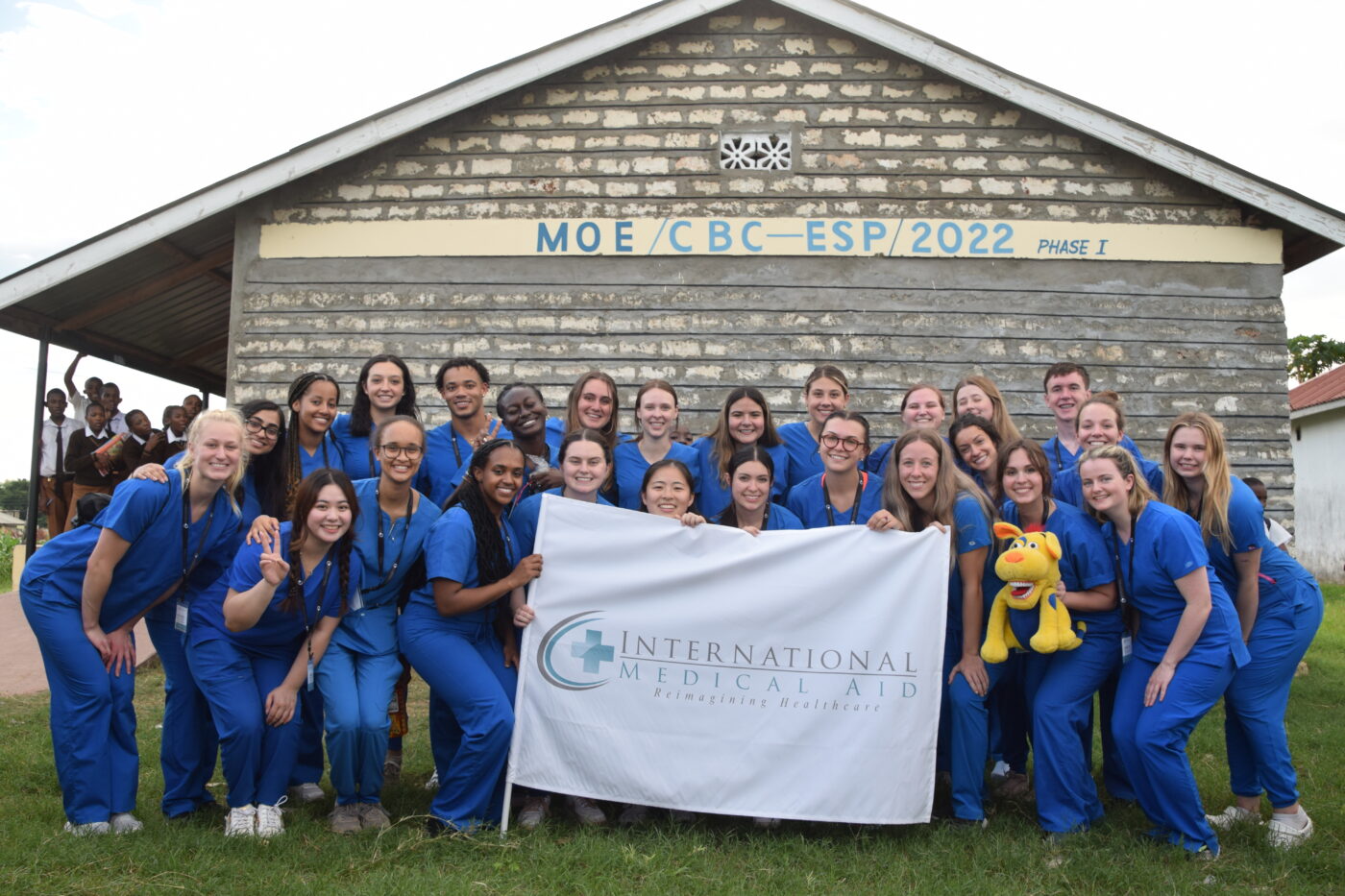As high school students prepare for college, they encounter a critical question: IB vs AP – which is better for college admissions? The International Baccalaureate (IB) and Advanced Placement (AP) programs are rigorous, college-level curricula that aim to prepare students for higher education. However, they differ in various ways. Understanding the differences is key to making an informed decision.
What is the International Baccalaureate Program?
The International Baccalaureate is a globally recognized two-year educational program for students aged 16 to 19. The program seeks to cultivate knowledgeable and compassionate young people who strive for a better world through understanding and respect for diverse cultures.
The curriculum for the IB program is broad and balanced, reflecting the program’s international perspective. It comprises six subject groups: Language and Literature, Language Acquisition, Individuals and Societies, Sciences, Mathematics, and The Arts. This diverse array of subjects allows students to explore multiple disciplines and fosters a well-rounded education.
One of the unique aspects of the IB program is its core components, which include the Theory of Knowledge course, an Extended Essay, and participation in Creativity, Activity, and Service (CAS) projects.
The Theory of Knowledge course challenges students to reflect on the nature and reliability of knowledge. It encourages critical thinking and prompts students to make connections across various academic disciplines.
The Extended Essay is an independent, research-based paper of up to 4,000 words. This component offers students a taste of academic research, allowing them to investigate a topic of special interest in-depth.
Lastly, the CAS requirement encourages students to engage in a range of experiences and at least one project, broadly defining the three strands of Creativity, Activity, and Service. This fosters students’ awareness and appreciation of life outside academia.
Is IB Harder Than AP?
The question, “Is IB harder than AP?” is common, but the answer isn’t clear-cut. The perceived difficulty of IB and AP can vary greatly depending on a student’s strengths, weaknesses, and academic interests.
The IB program is often viewed as more demanding because it is comprehensive. Students must study a range of subjects, including languages, humanities, sciences, and arts, often at an advanced level. Furthermore, the additional core components of the IB program – Theory of Knowledge, Extended Essay, and CAS – add to the workload and intensity of the program.
Conversely, AP courses allow students to delve deep into specific subjects of their choosing. The focused nature of AP can make it seem more manageable to some students, particularly those with clear academic interests or career goals. However, the level of content in AP classes is typically equivalent to a college-level course, making them challenging in their own right.
Whether IB or AP is ‘harder’ will depend largely on the student. Those who enjoy a broad and interconnected curriculum might thrive in the IB program. Those who focus on specific subjects might find the AP program more suitable. Both rigorous and respected programs offer excellent college preparation and beyond.
What is the Advanced Placement (AP) Program?
The Advanced Placement (AP) program is an initiative by the College Board that provides motivated and prepared students the opportunity to study and learn at the college level. This program is well-regarded internationally and allows students to immerse in subjects they are passionate about, all while gaining advantageous skills for future college coursework.
AP offers over 30 courses, ranging from Art History to Calculus, Environmental Science to World History, and everything in between. This breadth of subjects allows students to delve deeply into specific areas of interest or explore new topics that could spark future passions.
One notable aspect of the AP program is its flexibility. Unlike the IB program, which requires a comprehensive study across a range of subjects, AP allows students to select the courses aligning with their interests and career aspirations. This means that a student interested in a healthcare career can focus on AP Biology and AP Chemistry, potentially aiding their future participation in a pre-med shadowing study abroad program or medical internships for high school students.
Each AP course concludes with a standardized exam that assesses students’ mastery of college-level material. The scoring of the exams is on a scale of 1 to 5, with many colleges and universities offering credit or advanced standing to students who score a 3 or higher.
The Advanced Placement program’s ultimate goal is not just to provide students with the opportunity to earn college credit and placement. It also aims to cultivate curious, dedicated, and well-rounded students, prepared to succeed wherever their future education or career paths take them.
That said, while the flexibility of the AP program can be a significant advantage, it’s also worth noting that the depth and breadth of the IB program can provide its unique benefits. The choice between AP and IB will depend on each student’s circumstances, learning style, and future goals.
So, which is better for college admissions – IB or AP?
IB vs AP: What's Better for College Admissions?
When comparing IB vs AP in terms of college admissions, both programs are highly respected by colleges and universities. Admissions officers know that both IB and AP courses are rigorous and demonstrate a student’s commitment to their education.
However, the best choice between IB and AP depends on the individual student. The IB program might be the better choice for students who enjoy a broad-based education and are willing to take on a heavier workload. The AP program could be more beneficial for students who prefer to focus on specific subjects or are considering careers in healthcare and are interested in pre-med shadowing study abroad programs or medical internships for high school students.
Understanding AP and IB Exam Scores
Exam scores are a crucial part of both AP and IB and understanding how they work can be vital to your academic planning.
AP Scoring
In the case of AP, each exam is scored on a scale of 1 to 5, with 5 being the highest. Here’s what each score generally means:
- Score of 5: Extremely well qualified
- Score of 4: Well qualified
- Score of 3: Qualified
- Score of 2: Possibly qualified
- Score of 1: No recommendation
A score of 3 or higher is often considered passing, and many colleges will give credit for these scores. However, some more selective schools may require a 4 or 5 for credit.
IB Scoring
On the other hand, IB exams are scored on a scale of 1 to 7, with 7 being the highest. Students can earn up to three additional points for their combined results on the theory of knowledge and the extended essay. A Diploma Program student can be awarded the highest total is 45 points.
The average score for students who receive the diploma is approximately 30 points. Scores of 4 or higher are generally considered passing, and many colleges will give credit for these scores.
Beyond the Classroom: Real-World Experience
While AP and IB coursework can be a significant part of preparing for a healthcare career, gaining hands-on experience through internships and shadowing programs can also be incredibly beneficial. Participating in a pre-med shadowing study abroad program can provide a global perspective on healthcare and offer invaluable insights into the medical profession.
In addition, medical internships for high school students provide opportunities to gain practical experience, make informed career decisions, and even build a network within the medical community. Such experiences can also strengthen college applications and offer a competitive edge in admissions.
Understanding College Credit Recognition for AP and IB
One of the main reasons students choose to undertake either AP or IB classes is to earn college credits while still in high school. However, not all universities recognize AP and IB classes similarly, and understanding the differences can help you make an informed choice.
AP and College Credits
The AP program is run by the College Board, a U.S.-based organization. AP classes are typically more recognizable to US colleges and universities, with most granting college credits for scores of 3, 4, or 5 on AP exams. However, the amount of credit and the score required can vary greatly between institutions. For instance, Tulane University provides a comprehensive guide to credits they accept, demonstrating how each AP exam translates into university credits.
AP’s popularity and recognition in US colleges can be a significant advantage for students who are certain they want to pursue their higher education in the United States.
IB and College Credits
On the other hand, the IB program is international, recognized by universities worldwide. Although US colleges recognize the IB, the credit policies can be more complex than AP. Some universities only award credit for higher level (HL) IB courses. In contrast, others may require the full IB Diploma for credit.
Moreover, the IB’s international recognition can significantly benefit students considering studying abroad for college. An IB Diploma is recognized by universities in more than 100 countries, which can provide students with a wider range of options for higher education.
However, as with AP, credit policies for IB vary by institution. For instance, the University of Georgia provides a helpful comparison of credit policies, highlighting the different considerations for students.
AP vs IB: Factors to Consider
While both AP and IB can earn students college credits, there are differences that students should be aware of. In an article by US News, they compare classes, providing insights that can help students make the right choice.
For instance, AP classes allow for more flexibility, as students can pick and choose the AP courses that align with their interests or intended college major. However, AP classes are typically more focused on the final exam, with less emphasis on coursework throughout the year.
The IB program, on the other hand, is more holistic, emphasizing both coursework and final exams. The program also includes a mandatory core component of Theory of Knowledge (ToK), Extended Essay (EE), and Creativity, Activity, Service (CAS) hours. This can be advantageous for students seeking a well-rounded education but also requires a significant time commitment.
Ultimately, the decision between AP and IB should consider personal academic goals, college aspirations, and the availability of courses at one’s school. Whatever the choice, students should remember that both AP and IB are rigorous programs that can prepare them for the demands of college and beyond.
Enhancing Your College Application with Hands-On Medical Experience
Choosing between IB and AP is an important decision for students preparing for college, but academic performance alone is not enough to stand out in competitive admissions. Universities value applicants who complement their coursework with real-world experience, especially in fields like healthcare. If you’re considering a career in medicine, participating in a structured medical internship can strengthen your application and give you practical exposure to the profession.
Medical Internships: Gaining Experience Beyond the Classroom
Medical internships provide a direct way to engage with patient care, observe experienced professionals, and develop skills that textbooks and lectures cannot teach. International Medical Aid (IMA) offers global pre-med internships that allow students to shadow doctors, participate in healthcare initiatives, and gain insight into different medical systems worldwide. These internships are available during the summer and winter, providing flexibility for students looking to gain experience between academic terms.
During these programs, participants observe patient consultations, surgical procedures, and hospital operations. The hands-on nature of these internships allows students to understand the daily responsibilities of healthcare professionals while also building communication and problem-solving skills. Additionally, working in international healthcare settings provides exposure to different medical challenges, preparing students for the diverse situations they may encounter in their careers.
How a Medical Internship Strengthens Your Application
When applying to competitive programs, admissions committees look for well-rounded candidates who have demonstrated a clear commitment to medicine. A structured internship allows you to:
- Showcase Real-World Experience – Shadowing physicians and engaging in medical settings proves that your interest in healthcare goes beyond academics.
- Develop Cultural Competence – Exposure to international healthcare environments enhances your ability to work with diverse patient populations, a valuable skill in modern medicine.
- Enhance Your Personal Statement – Meaningful experiences from an internship provide compelling stories that strengthen medical school applications and interviews.
- Build Strong Letters of Recommendation – Many internship programs, including IMA’s, offer mentorship and letters of recommendation from healthcare professionals.
Choosing the Right Internship Program
With multiple options available, selecting an internship that aligns with your goals is essential. IMA’s pre-med internships are designed to provide immersive experiences in East Africa, South America, and the Caribbean. These programs are open to students at various stages of their education, offering structured learning opportunities with medical professionals in hospitals, clinics, and community health settings.
The summer and winter internship programs allow participants to schedule their experience around academic commitments, making it easier to gain valuable exposure without interfering with coursework. Whether you’re preparing for medical school applications or looking to strengthen your understanding of healthcare, these internships offer a unique way to advance your education while making a meaningful impact.
Start Planning Your Medical Experience
Gaining direct exposure to medicine through an internship sets you apart in the admissions process and prepares you for the challenges of a medical career. If you’re looking for an opportunity to work alongside professionals and explore healthcare beyond the classroom, International Medical Aid’s internships provide a structured path to build your skills and strengthen your application.
To learn more about program dates, locations, and application details, read:
➡ IMA Pre-Med Internships
➡ How It Works
➡ Read Alumni Testimonials
Pre-Med Shadowing Study Abroad Program: A Comprehensive Learning Experience
A pre-med shadowing study abroad program is an excellent opportunity for students to gain firsthand experience in the medical field while being exposed to diverse cultures and healthcare systems. Offered by International Medical Aid (IMA), these programs are designed to provide an immersive learning experience that goes beyond traditional classroom learning.
During a pre-med shadowing study abroad program, students can shadow experienced healthcare professionals in various settings, from large hospitals to rural clinics. This direct exposure allows students to observe medical procedures, engage with patients, and learn about different aspects of patient care.
Observing surgeries can offer students an unfiltered view of the complexities and challenges of medical procedures. Attending medical lectures can provide a deep understanding of various medical conditions, treatments, and the latest advancements in the field.
Additionally, the study abroad component of the program exposes students to different cultures, healthcare systems, and medical practices around the world. This can broaden students’ perspectives and foster a deeper understanding of global health issues.
These programs often include cultural excursions and language classes, making them a truly comprehensive learning experience. Students can explore local sites, learn about history and culture, and perhaps learn a new language. This cultural immersion can enhance students’ global awareness and communication skills, traits highly valued in the increasingly interconnected healthcare field.
Medical Internships for High School Students: Steppingstone to a Medical Career
Medical internships for high school students are a stepping stone towards a healthcare field career. They provide students with practical exposure and hands-on experience, allowing them to apply classroom knowledge in real-world settings.
Internships can be found in various settings, such as hospitals, clinics, or research laboratories. They can provide hands-on experience in various areas, from patient care to medical research. Depending on the internship, students might assist with patient intake, observe surgeries, or contribute to ongoing research projects.
IMA offers a range of medical internships tailored for high school students. These internships are designed to help students make informed career decisions, build practical skills, and gain a competitive edge in college admissions.
Beyond the practical experience, medical internships can offer other significant benefits. They can help students build a professional network within the medical community, which can be beneficial for future job or internship opportunities. Additionally, internships can lead to job offers, paving the way for a successful healthcare career.
To make the most of these opportunities, students can seek guidance from professionals in the field. IMA offers medical school admissions consulting to assist students in navigating their path to a medical career. With expert advice and personalized support, students can effectively plan their high school journey to align with their long-term career goals.
Both a pre-med shadowing study abroad program and medical internships for high school students offer valuable experiences that can enrich a student’s understanding of the healthcare field, bolster their college applications, and provide a solid foundation for a future medical career. Whether a student chooses the IB or AP program, these experiences can significantly add to their academic journey.

How to Choose Between IB and AP?
When deciding between IB and AP, consider the following factors:
- Interests and Career Goals: If you’re interested in a broad-based education, the IB program might be the best choice. However, suppose you have a specific career path in mind, such as medicine, and are considering opportunities like a pre-med shadowing study abroad program or medical internships for high school students. In that case, the AP program might be more beneficial.
- Workload: Keep in mind that the IB program often involves a heavier workload due to the Extended Essay and CAS projects. If you’re ready for these challenges, IB could be the right choice. If you prefer a more focused study, AP might be better.
- College Credit: Some colleges give more credit for AP exams than for IB exams, so research your prospective colleges’ policies.
- Your School’s Offerings: Not all schools offer both IB and AP courses, so check what’s available at your school.
In the end, whether IB is harder than AP or which program is better for college admissions depends largely on the individual student. Both programs offer rigorous coursework that can prepare you for higher education and potential careers in healthcare.
Remember, it’s not just about IB vs AP; it’s also about complementing your academic work with practical experiences such as a pre-med shadowing study abroad program or medical internships for high school students. Ready to explore these opportunities? Schedule an appointment with IMA to learn more.
At the heart of it, the decision between IB and AP courses should align with your academic interests, learning style, and future career aspirations. Whether you opt for the comprehensive, inquiry-based approach of IB or the subject-focused, college-level rigor of AP, remember that both pathways require dedication and hard work. Complementing either with experiences like a pre-med shadowing study abroad program or medical internships can further enhance your readiness for college and beyond.
The choice between IB and AP is not a one-size-fits-all solution. It is a personal decision that should reflect your educational preferences and career goals. Regardless of your chosen path, remember that your commitment to learning and your passion will truly set you apart.
IB vs AP A Deeper Dive into the Differences
As we continue to explore the topic of IB vs AP, it’s crucial to understand the distinct differences that set these two programs apart. Both programs offer rigorous, college-level curricula, but the approach and structure of each vary significantly. Let’s dive deeper into the distinct aspects of IB vs AP.
Program Structure IB vs AP
One of the most apparent differences when considering IB vs AP is the structure of each program. IB requires students to take courses across six subject groups, providing a well-rounded education. Additionally, the IB program includes core components such as the Theory of Knowledge (ToK) course, the Extended Essay (EE), and the Creativity, Activity, Service (CAS) projects.
On the other hand, AP is more a la carte. Students can choose AP courses that align with their interests or career aspirations. The AP program doesn’t require an overarching program of study like the IB.
Course Content and Approach: IB vs AP
Another significant difference when comparing IB vs AP is the content and approach of the courses. IB courses tend to be more broad and holistic, emphasizing the interconnectedness of knowledge. They also stress the development of a global perspective.
Conversely, AP courses are typically more subject-specific and go deep into the content area. They often mirror the type of content and approach found in introductory college courses.
Assessment IB vs AP
The assessment methods used in IB vs AP also differ. IB assessment includes both internal and external components, and the courses are evaluated using criterion-referenced methods. This means that students’ work is compared to established standards and criteria rather than to the work of other students.
In contrast, AP assessments are primarily exam-based, with students’ scores compared to others on a norm-referenced scale. The AP exams are typically taken in May, and the scores are used to determine whether students may receive college credit.
College Credit IB vs AP
When examining IB vs AP in terms of college credit, the outcome largely depends on the specific college or university. Some institutions may offer more credit for AP exams, while others may prefer IB coursework. It’s essential for students to research the credit policies of their prospective colleges when deciding between IB vs AP.
FAQs
Is the IB diploma worth it?
Whether the IB diploma is worth it depends on the student. It can be excellent for students who enjoy a broad-based education, are ready to take on a rigorous workload, and value the IB program’s international perspective.
Do universities prefer IB or AP?
Universities generally respect both IB and AP programs. However, some colleges might offer more credit for AP exams than for IB exams. It’s essential to research your prospective colleges’ policies.
Can I do both IB and AP?
You can take both IB and AP courses, provided your school offers them. However, remember that both programs are rigorous and require a significant time commitment.
What is an IB class like?
An inquiry-based IB class encourages students to think critically and globally. It involves a broad range of subjects, including an Extended Essay and Creativity, Activity, and Service (CAS) projects.
How many AP classes should I take for Harvard?
Harvard doesn’t have a specific requirement for the number of AP classes. However, they do look for students who have taken advantage of the most challenging coursework. Therefore, taking multiple AP classes in subjects that interest you can strengthen your application.
What's the average score for AP and IB exams?
In 2020, the average AP exam score was 2.78 out of 5, with over 60% of students scoring a 3 or higher. For the IB diploma, the average score was approximately 30 out of 45 in the same year.
How does AP credit work in college?
Each college has a policy for granting AP exam credit. A score of 3 or higher is needed to earn college credit, but some colleges require a 4 or 5. It’s best to check with the specific institution for their policy.
How can I find medical internships for high school students?
Several organizations and hospitals offer medical internships for high school students. IMA offers a range of medical internships and can help you find the right opportunity. Schedule an appointment to learn more.
Are IB classes harder than AP?
Both IB and AP classes are rigorous and challenging, designed to prepare students for college-level coursework. The perception of difficulty can vary depending on a student’s strengths, interests, and the particular subject matter of the class.
Can AP and IB credits be used for the same college course?
This can vary by institution. Some universities may accept AP and IB credits for the same course, while others may require you to choose which credit to apply. It’s always best to check the specific policies of the institution that you plan to attend.
Do colleges see your IB predicted grades?
Some universities, particularly those outside of the US, may consider your IB predicted grades during admissions. These predicted grades can give admissions officers a sense of your academic potential before your final IB results are available.
Can IB or AP classes be balanced with extracurricular activities, like a pre-med shadowing study abroad program?
It’s possible to balance rigorous academic programs like IB or AP with extracurricular activities. It requires good time management and organization skills. Extracurricular activities like a pre-med shadowing study abroad program can provide valuable real-world experience and make your college application stand out.
Can I use AP or IB classes to fulfill prerequisites for medical school?
Some medical schools may accept AP or IB credits to fulfill prerequisite course requirements, but policies vary. It’s essential to research each medical school’s policy or consult with a pre-med advisor or an admissions consulting service to understand specific requirements.
How can I determine if AP or IB better fits my career goals?
Consider your academic interests, learning style, college plans, and career goals. If you’re focused on a specific field, AP might be a good choice because it allows you to take courses in that area. IB might be a better fit if you appreciate a holistic, interdisciplinary approach. Consulting with academic advisors or career counselors can provide personalized guidance.
Do AP or IB scores affect college GPA?
Typically, AP or IB scores do not directly affect your college GPA. However, they can earn you college credits, allowing you to skip certain introductory classes and move into higher-level classes sooner.
Is it possible to study for AP or IB exams independently?
Yes, it is possible to self-study for AP exams, and some students also self-study for higher-level (HL) IB exams. However, it requires self-discipline and excellent study skills. Access to previous tests, study guides, and other resources can also be beneficial.
How can I best prepare for the rigors of IB or AP classes?
Effective study habits, time management skills, and a strong work ethic are crucial. Additionally, seeking help when needed, whether from teachers, tutors, or classmates, is important. Participation in a pre-med shadowing study abroad program can also provide practical learning experiences to prepare for future studies.
Remember, choosing between IB and AP is a significant decision, but it’s just one part of your academic journey. Whether you lean towards the international, holistic approach of IB, or the focused, college-credit-oriented AP, supplementing your academic preparation with practical experiences, like medical internships or a pre-med shadowing study abroad program, can make a crucial difference in your readiness for a future medical career.
The debate of IB vs AP and which is better for college admissions ultimately boils down to individual preferences, academic goals, and your school’s offerings. Both provide rigorous, college-level coursework aimed at preparing students for higher education. Both can be highly beneficial whether you enter the medical field or pursue a different career path.
It’s important to consider the structure and demands of IB vs AP, your academic strengths, and your career aspirations. If you are leaning towards a healthcare profession, complementing your choice of IB or AP with a pre-med shadowing study abroad program or a medical internship for high school students can significantly enhance your college application and provide a solid foundation for your future profession.
So, while the question “Is IB harder than AP?” might linger, remember that both paths require dedication and hard work. Your commitment to learning, curiosity, and passion for your chosen field are the elements that truly set you apart.
College admissions look beyond your choice of IB or AP. They value your overall academic performance, extracurricular activities, and personal qualities. Be sure to highlight experiences like medical internships or a pre-med shadowing study abroad program in your application. These show your initiative, commitment, and practical exposure to your field of interest.
As you navigate your high school journey and prepare for college admissions, keep exploring, learning, and growing. Remember, the road to higher education is not about choosing the perfect path but about making the most of the path you choose.
The field of healthcare, in particular, values practical experience highly. Whether you’re a high school student considering a career in medicine or a pre-med student looking for an enriching study abroad program, IMA has a wealth of options. Schedule an appointment to explore the wide variety of opportunities we offer. We’re here to support you working toward your rewarding career in healthcare.
While the debate between IB and AP might seem daunting, remember that the choice is personal. Take your time and make the decision that feels right for you. Whether you choose IB or AP, you’re taking a significant step toward a bright academic and professional future.
The Underlying Philosophies: IB vs AP
As we delve deeper into the comparison of IB vs AP, it’s important to consider the philosophical underpinnings of each program. Understanding these differences can provide more insight into which program might best fit a particular student.
The Holistic Approach of IB
The International Baccalaureate program is built on a philosophy that values a holistic and global approach to education. At the heart of IB classes’ meaning is the commitment to develop knowledgeable, inquisitive, and caring young people who are motivated to succeed.
IB promotes intercultural understanding and respect, not as an alternative to a sense of cultural and national identity, but as an essential part of life in the 21st century. The curriculum aims to develop the intellectual, personal, emotional, and social skills needed to live, learn, and work in a rapidly globalizing world.
The Focused Approach of AP
On the other hand, the Advanced Placement program is grounded in the philosophy that motivated high school students can complete college-level courses. The focus of AP is to provide a pathway for students to receive college credit and placement.
AP allows students to concentrate on their chosen subjects, offering a more a la carte approach to education. This program encourages students to delve deeply into subjects they are passionate about, gaining college-level knowledge and skills in the process.
The Impact on Future Opportunities
How does this philosophical difference between IB and AP affect students’ opportunities, such as medical internships for high-school students? The answer may depend more on the individual student than the program they choose.
For example, a student who thrives in a structured, holistic program may find that the IB’s comprehensive approach provides a strong foundation for future opportunities, such as medical internships for high-school students. They might appreciate the international perspective and the focus on developing well-rounded individuals.
Conversely, a student with a strong interest in science may prefer the AP program’s flexibility, allowing them to focus on science courses that directly align with their career aspirations. This targeted approach could potentially enhance their preparedness for medical internships for high-school students.
Ultimately, both IB and AP offer pathways to success. The choice between IB vs AP should take into account a student’s learning style, interests, and future goals. Regardless of the program chosen, students can find ways to bolster their education through opportunities such as medical internships for high-school students.
Choosing the Right Path: AP, IB, or Both?
With all the information provided about AP and IB, deciding might seem daunting. Remember, there is no one-size-fits-all answer. What might be an excellent choice for one student might be better for another. Here are a few factors to consider:
- Curriculum: Are you interested in a broad, holistic curriculum (IB), or would you prefer to specialize in specific subjects of interest (AP)?
- College Credits: How do your potential universities treat AP and IB credits? Do they give more credit to one over the other?
- Workload: Both AP and IB are rigorous programs. Are you ready to handle the workload? Can you balance it with other commitments, such as a part-time job or extracurricular activities like pre-med shadowing study abroad programs?
- International Versus US Recognition: If you’re considering studying abroad, the international recognition of IB might be beneficial. On the other hand, if you’re sure you’ll be studying in the US, AP might be more advantageous.
- Availability: Does your school offer both AP and IB? If not, your choice might be made for you.
Remember, colleges look at your overall profile, not just your choice of AP or IB. They want to determine if you’ve challenged yourself with the most rigorous coursework available, but they also value extracurricular activities and personal qualities.
If you’re interested in the medical field, participating in medical internships for high school students can provide valuable practical experience and enhance your college application. Opportunities like these can give you a competitive edge, regardless of whether you choose AP or IB.
If you’re still unsure which path to choose, consider seeking guidance from your school counselor, teachers, or even an admissions consulting service. They can provide advice based on your academic goals and career aspirations.
Choosing between AP and IB is a significant decision. Still, it’s just one of many you’ll make on your educational journey. Whether you choose AP, IB, or a combination of both. The most important thing is to challenge yourself. Also, pursue your passions and make the most of the opportunities available. Remember, your choice of high school curriculum is just the start. With dedication, hard work, and the right support, you can have a foundation for a successful future in college and beyond.
For those interested in medical careers, remember the value of practical experience. Medical internships for high school students and pre-med shadowing study abroad programs can provide insights into the field, help you make informed career decisions, and give your college applications a competitive edge. Regardless of your choice of curriculum, real-world experiences in the medical field can be a valuable step.






